I won’t lie, at first glance, even in the dreamiest of knits, the balaclava still reminds me of a robber mask.
Granted, with its thermal properties and fact that it can double as a protective gear, I can see the commercial appeal. The likes of Givenchy, Balenciaga, Prada and Marni have introduced their own model with retail prices going up to 725 USD.
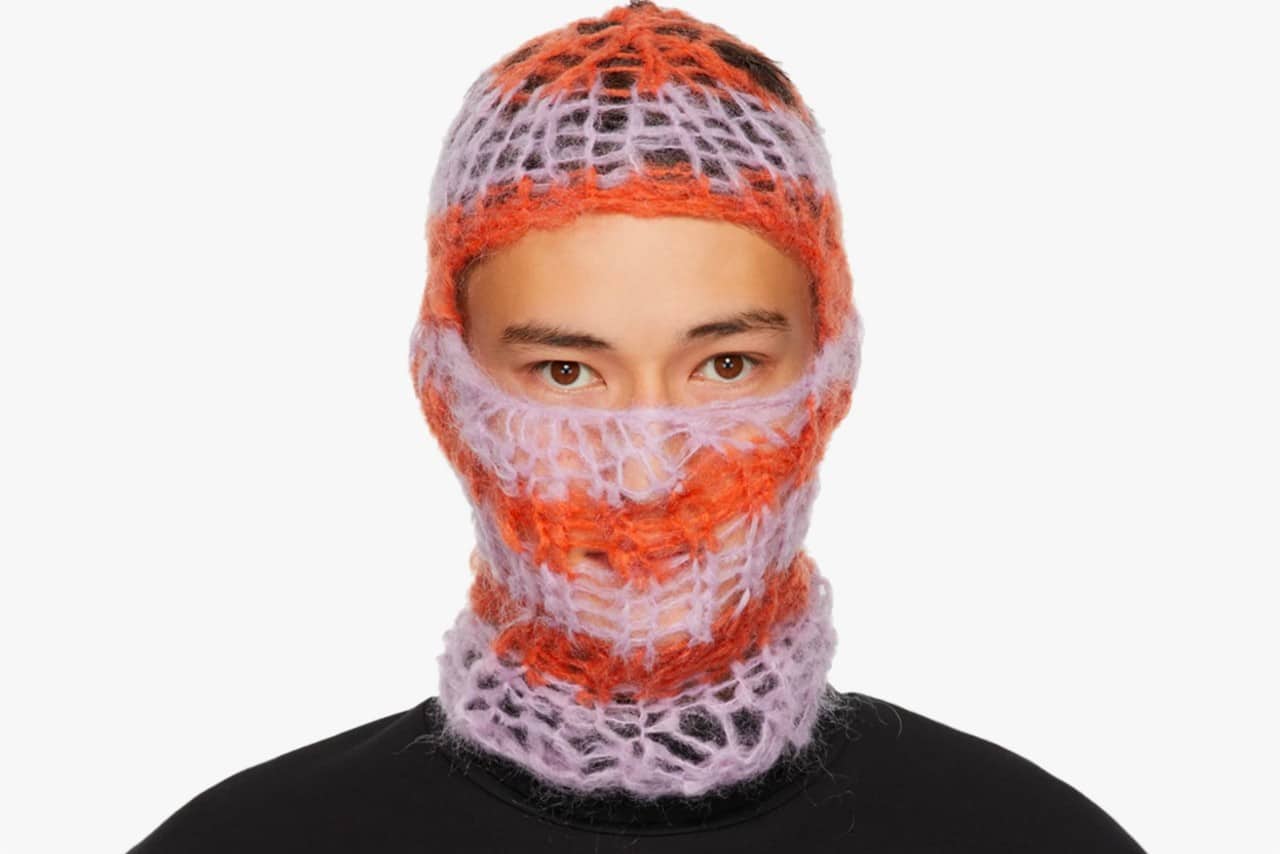
A long standing tradition of face covering
Looking past its negative connotation, the balaclava is part of a rich world tradition of face coverings. The Tuareg of Libya, the Bedouins (Egypt) and the Berbers (Morocco) are few of the African tribes that have adapted to the harsh desert weather through the use of cotton headdresses and face veils. It’s known by various name : litham, kufiya or hatta. The donning of the niqab, a full face veil, is also practiced among a fraction of Muslim women for religious purposes.

The current face gear bracing the runaway is inspired by a common Russian winter staple, the balaclava. Why is it called balaclava ? Well, unlike the bright knits that make up its composition, the origin of the name is much darker. In 1854, as British troops fought in the Battle of balaclava as part of the Crimean war, they were gifted handmade garments to protect themselves from the bitter cold weather. Impressive enough the garment continued to be worn by east Europeans for hundred of winter seasons.
Down South in the region of Kolkotta (India), the familiar item has been adopted as a winter must-have. Bhowmick, the Assistant Editor of Times of India recalls how locals would not step outside without a “Monkey cap” also known as “Bengali topi”.
If you ever visit a Bengali home in Kolkata, you will be greeted by the sight of everyone walking around wearing a monkey cap, means you will be greeted by people looking somewhat akin to bank robbers.
Bhowmick
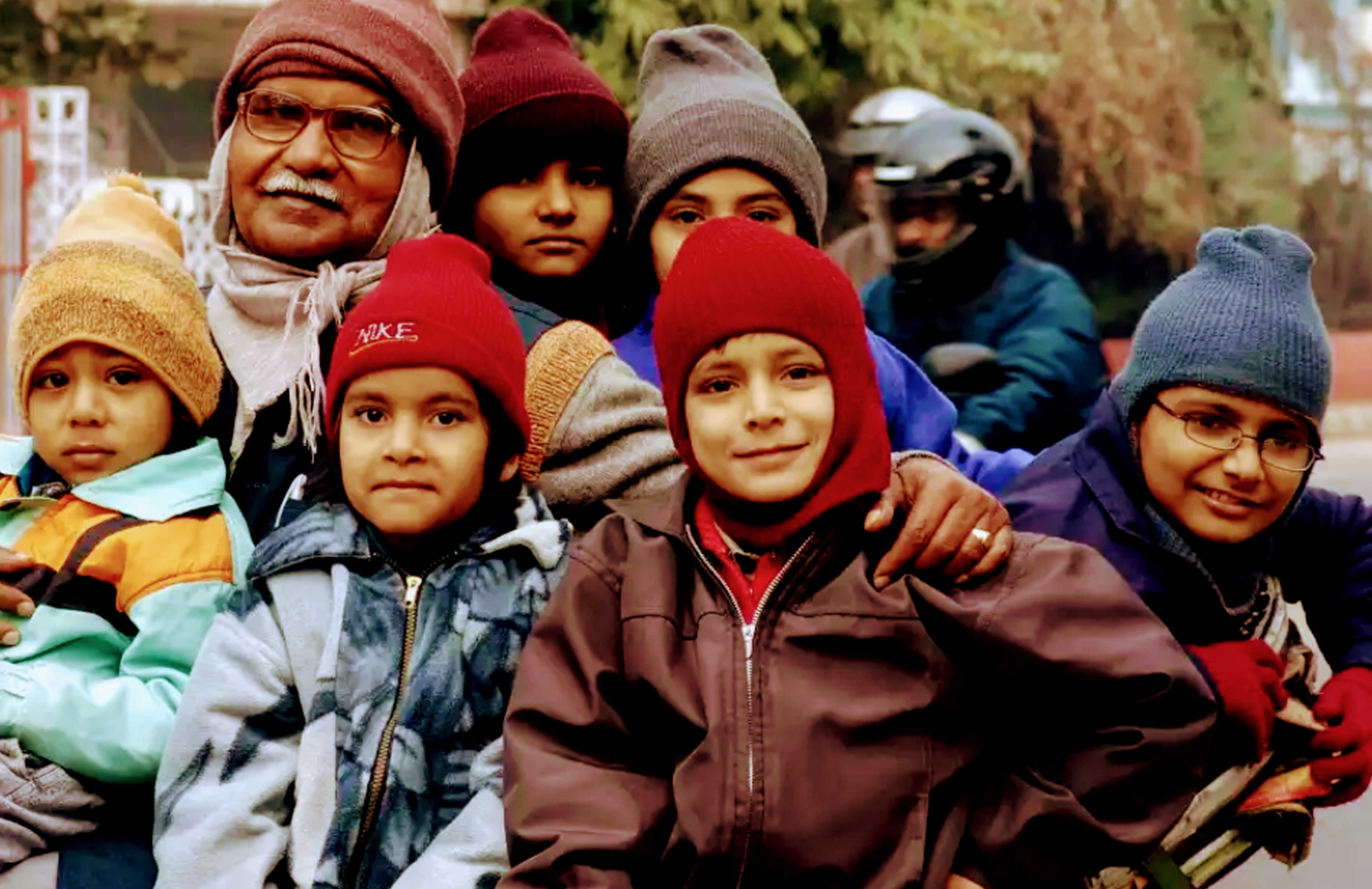
Seems like once again the objects of our everyday lives become an inspiration ground for designers. Anyone else recalls the Balenciaga Barbes shopping bag ?
The appeal of anonymity
Before turning into a fashion statement, the balaclava was used by law enforcement agencies as a form of thermal protection for the long hours spent in the cold weather. It covers 60% of the face. And the upside to that is that its wearer is also in turn unrecognizable.
This fortunate double feature benefitted armed forces and organized crime groups alike who, could keep their anonymity during excursions and special missions from well, each other.

It’s that very feature that attracted the UK Drill Music Scene as well as the broader hip hop scene. For the Hip Hop community, the masked gear has become a fashion statement and a way to protect its identity. They can now enjoy their fame and avoid unwanted attention to themselves. It also further intensify the cloud of mystery surrounding the artist.
A dangerous symbol
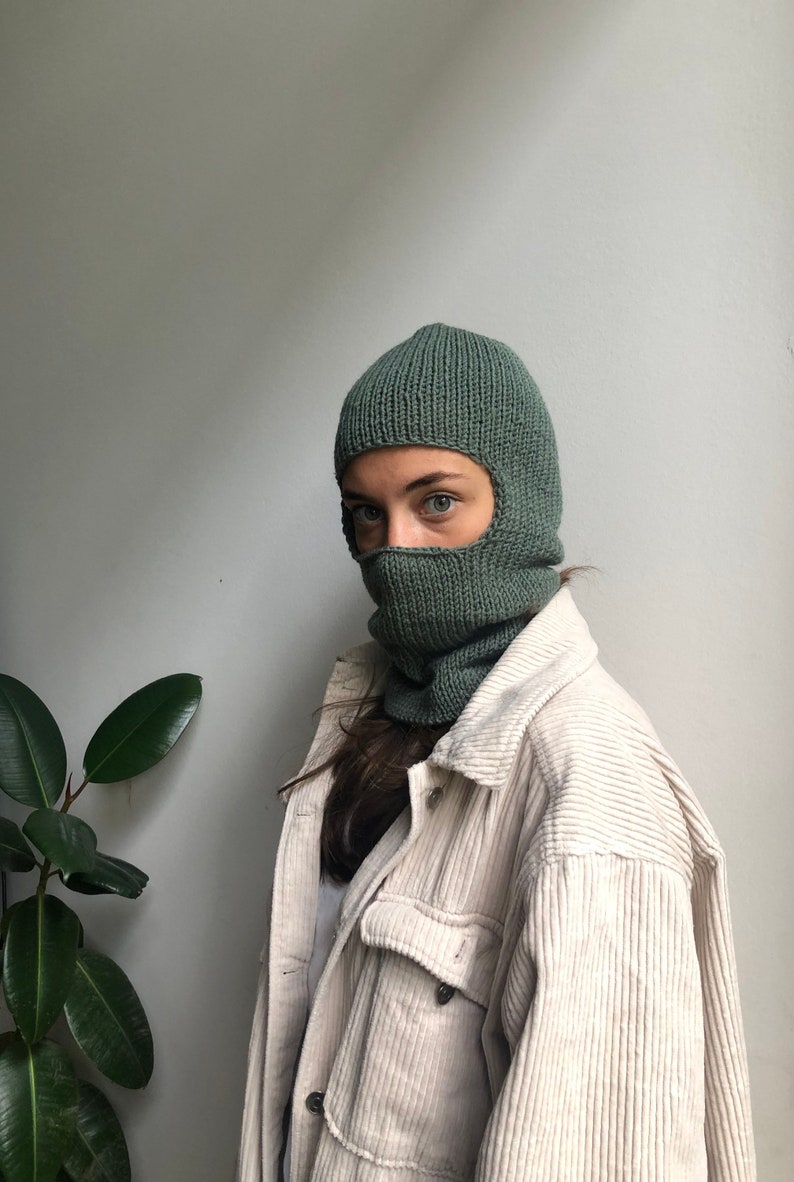
Yet, for a long time there has been a stigma with full or partial covering of the face. UK Prime Minister Boris compared niqabis to “bank robbers”. Even more so when it comes to visible minorities. A study by Washington Post on a group of non-Black respondents showed that Black men are more likely to be seen as threatening and untrustworthy when wearing a form of face covering as opposed to their white counterparts.
In 2018, Nike introduced his version of the balaclava only to be met with criticism. It was accused of profiting from gang culture and inciting the youth. The styling of the balaclava with a harness felt like a caricature of gang culture, at a time where the UK faced a major knife crime crisis.
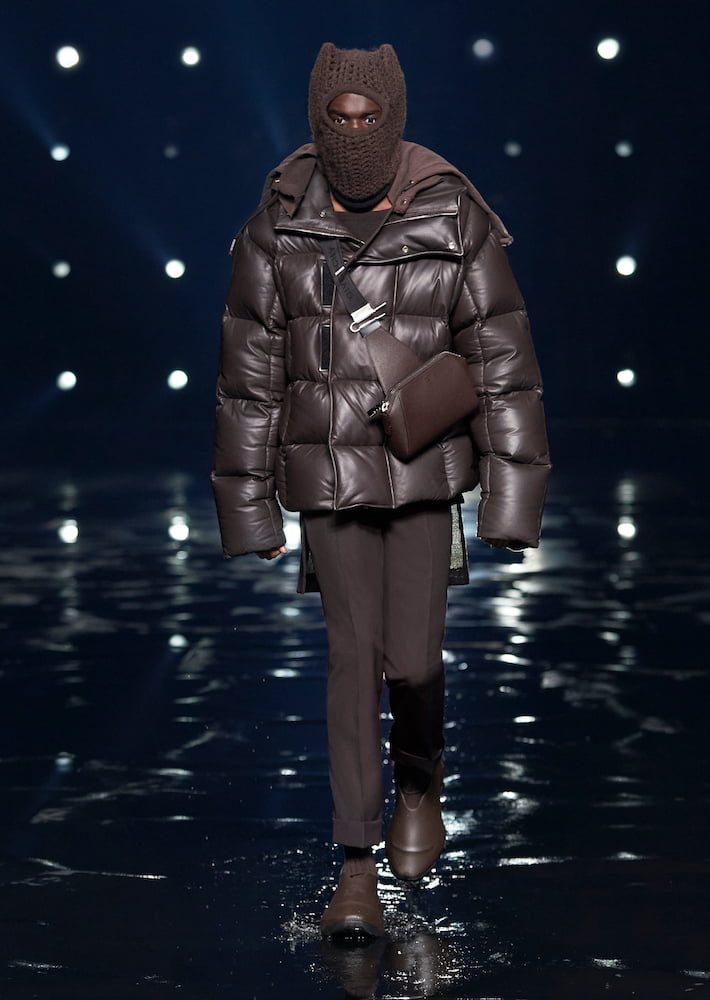
In 2021, this knitted version styled with a voluminous puffer is more tasteful. It clearly fulfills its original purpose as a winter accessory and no longer calls back to gangwear.
Yet, two years into the pandemic, the mask which covers half of our faces has become paramount to our lives. There has been a realization that face covering can hold another purpose outside of facilitating crime. It can be a mean of protection or a fashion statement.
Under the helm of Matthew Williams, Givenchy released a knitted balaclava as part of their 2021 Winter/Fall Collection. The garment was met with a positive response.
Now, that luxury houses have adopted the look into mainstream. Can we assume that the stigma will evaporate ? Or will the balaclava be simply another trend, one where only the privileged can safely experiment with ?
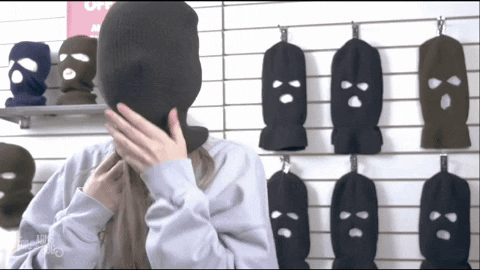
The potential to dress your inner child
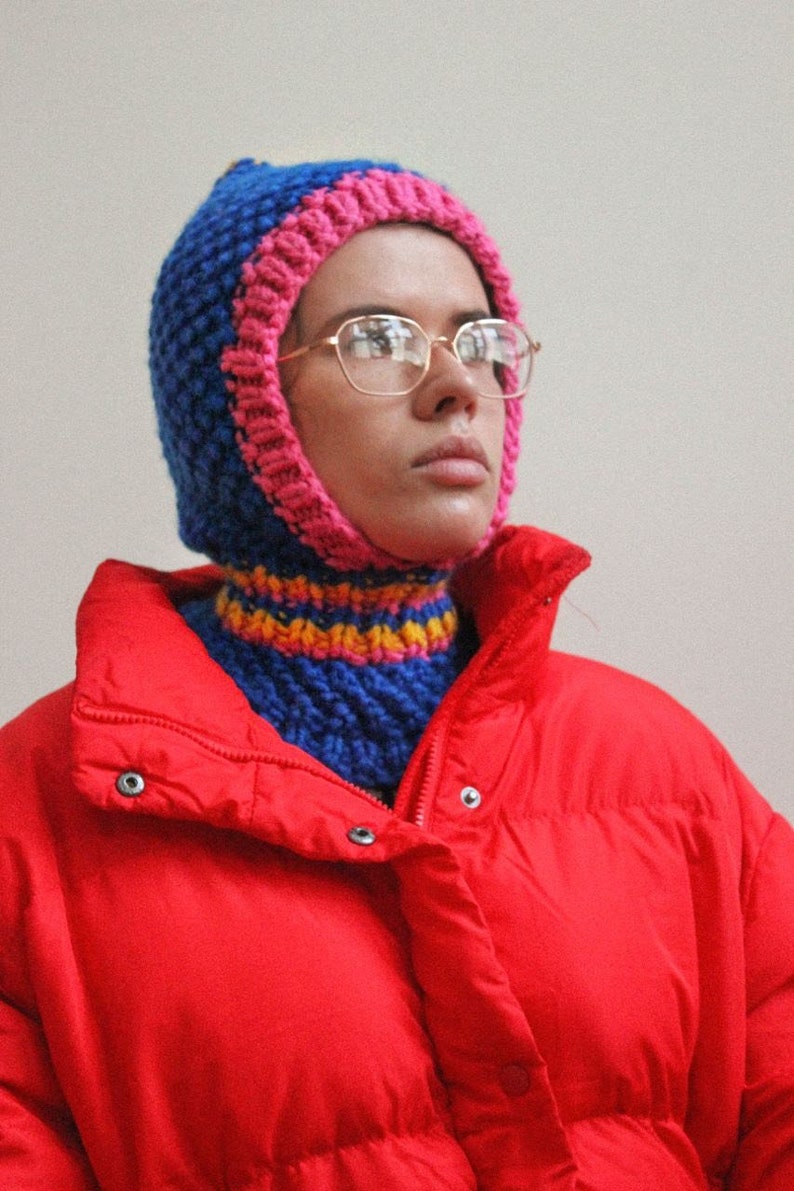
Still there is much potential to this trend. I love seeing the renditions of the knitted garments in colorful patterns and the ones replicating plush animals. It instantly brings out a homely vibe and takes me back to my sweet childhood.
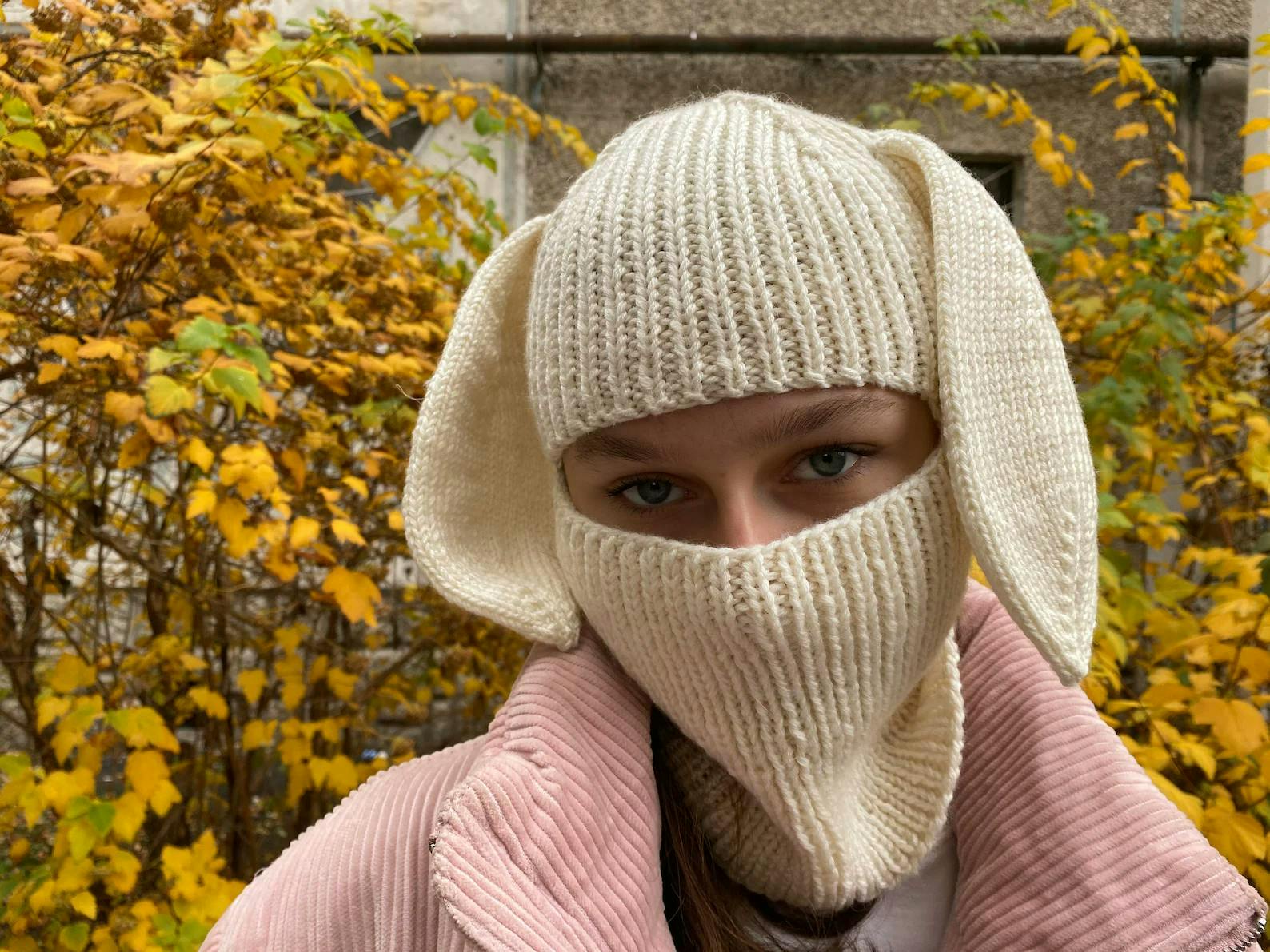
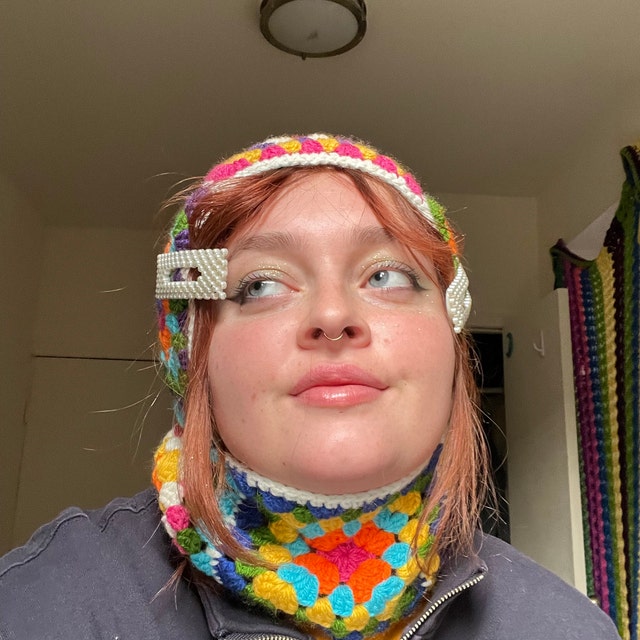
Moreover many critics of the balaclava call out the garment for being “unflattering”. During these anxious ridden times, I ask can fashion be simply comforting ?
More on the subject
https://timesofindia.indiatimes.com/blogs/life-n-style/the-monkey-cap-and-a-shivering-bengali/
https://theface.com/music/bally-on-me-why-uk-rappers-cover-their-faces
Dressing your inner child tumblr https://imgur.com/a/xwokUPY
https://www.refinery29.com/en-gb/2017/09/170850/street-style-london-fashion-week-ss18#slide-44
